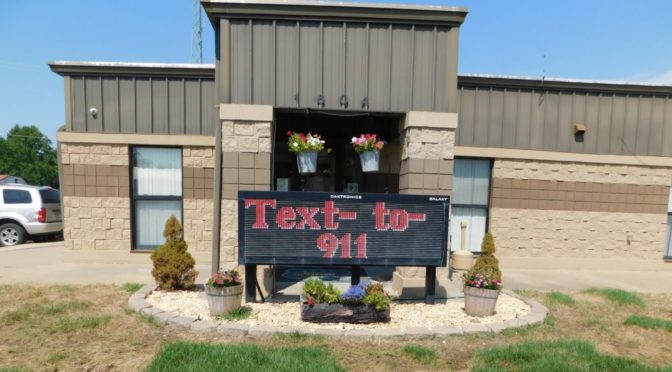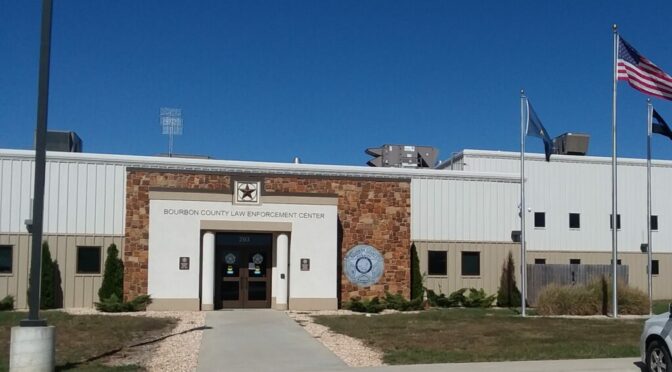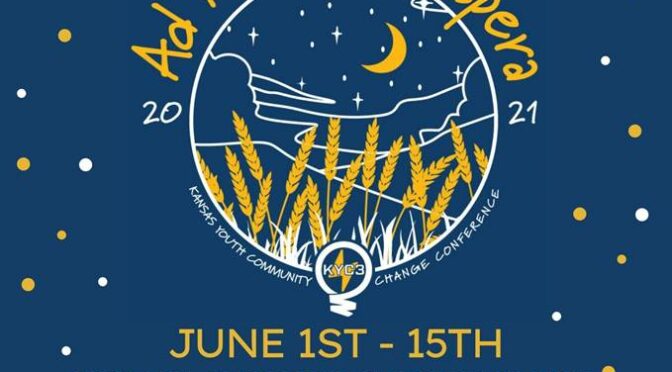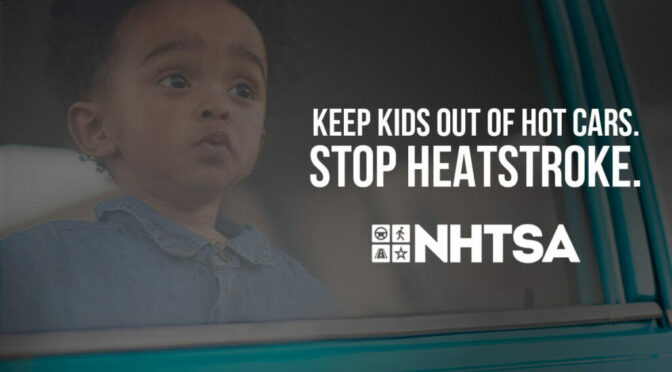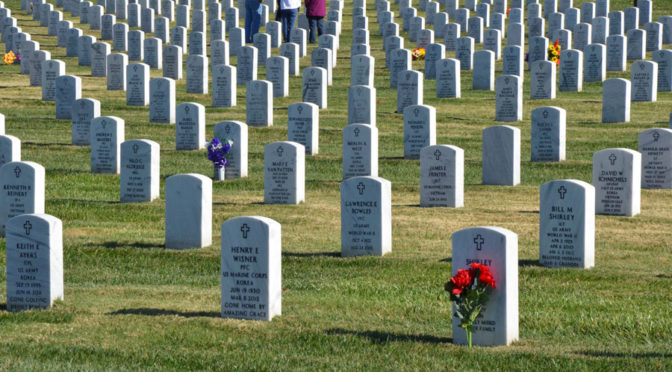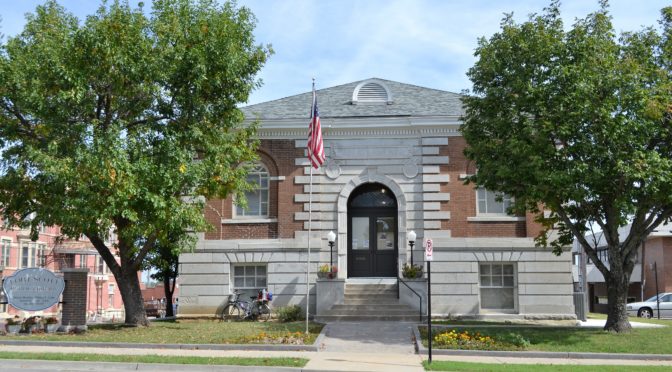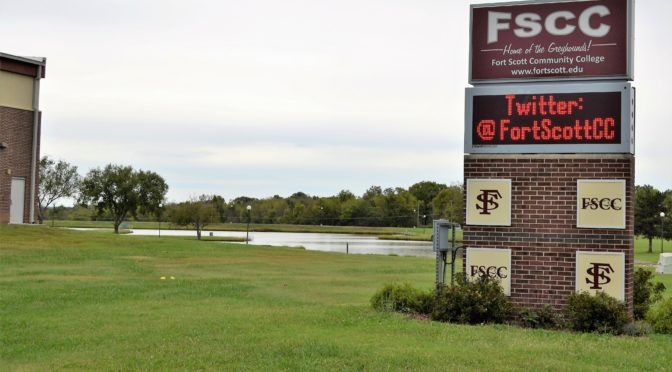All posts by Submitted Story
Chamber Coffee April 29 at Papa Don’s
|
|
|
|
|
|
|
|
|
|
Thriving Families, Safer Children: Kansas Special Mentoring Project
Governor Kelly Announces Kansas Chosen for Special Mentoring Project
~ Thriving Families, Safer Children project seeks to create strong families and communities where children are free from harm ~
TOPEKA – Today, Governor Laura Kelly announced Kansas is one of twelve jurisdictions chosen for a special mentoring project through the Administration for Children and Families called Thriving Families, Safer Children. Designed to leverage various stakeholders to steward longstanding, transformative change, Kansas’ partnership with Thriving Families, Safer Children will create the conditions for strong, prosperous communities where children are free from harm.
“I am pleased to see Kansas has been selected as a Thriving Families, Safer Children jurisdiction,” said Governor Laura Kelly. “The safety and well-being of Kansas’ children is my top priority, and since 2018, we have made needed progress and investments to focus on early prevention and intervention. Through our participation in this project, we will be able to reshape child welfare in Kansas for the betterment of all children and families.”
Kansas was selected to participate in the Thriving Families, Safer Children program because of the Kelly administration’s ongoing commitment to creating safer, more nurturing environments for children in Kansas.
The team overseeing the Thriving Families, Safer Children project will involve the Kansas Department for Children and Families, Kansas Children’s Service League and the Kansas Children’s Cabinet and Trust fund to improve primary prevention efforts. This team will address longstanding challenges to:
- Address the systemic barriers to creating a child well-being system in Kansas,
- Develop robust networks of community based primary prevention support,
- Integrate family, youth and community expertise into child well-being systems,
- And revise statutory definitions of neglect and mandatory reporting to clearly differentiate maltreatment from poverty.
“The Department for Children and Families is excited about the opportunity to leverage the Thriving Families, Safer Children project to improve our work,” said Secretary of DCF Laura Howard. “This project is a continuation of Governor Kelly’s commitment to improve the lives of Kansas’ future leaders and will be instrumental in improving our state’s primary prevention efforts and keeping children in their homes safely.”
“We are excited for this opportunity to collaborate with these national and state partners to reimagine and recreate our child welfare system into one that achieves the outcomes we all want to see: thriving children, families, and communities,” said Melissa Rooker, executive director of the Children’s Cabinet, which will help lead this effort in Kansas.
Kansas has been selected as a Round Two jurisdiction to develop strategies to transform existing child welfare systems and build infrastructure to support and strengthen child and family well-being. Round Two jurisdictions will specifically provide support for the integration of community, family, and youth expertise in creating the foundation for strong child and family well-being systems by welcoming and harnessing community, family, and youth voices, conducting policy analysis and drafting new policy or legislation, strategic consultation on approaches for human services delivery system integration, expert technical assistance on data infrastructure and other specific assistance.
About Thriving Families, Safer Children:
The United States Children’s Bureau (CB), Casey Family Programs (CFP), the Annie E. Casey Foundation (AECF) and Prevent Child Abuse America (PCA) (“National Partners”) have joined together with parents, youth and community organizations in partnership across the public, private, and philanthropic sectors to assist Thriving Families, Safer Children jurisdictions in creating a more just and equitable child and family well-being system that benefits all children and families and breaks harmful intergenerational cycles of trauma and poverty.
The Bourbon County Sheriff’s Office Daily Reports April 28
Kansas Youth Community Change Conference June 1-15

Protect Kids From Heatstroke
|
|
|
|
|
|
|
|
|
|
|
|
|
Planning on canning?
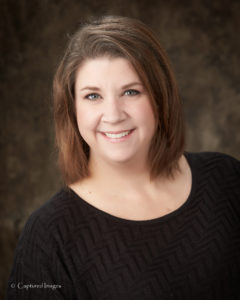
Family and Consumer Science Extension Agent
Adult Development and Aging
Family Resource Management
K-State Research and Extension
Southwind Extension District
210 S. National
Fort Scott, KS 66701
Office: 620-223-3720
Fax: 620-223-0332
[email protected]
Prep now for safely preserving garden foods.
Gardeners are making their plans, and in some areas, vegetables and other foods are already being planted. That is a sign that food preservation season is not far away and now is the time to check canning equipment and make repairs needed or replace worn items.
Examine jars and take damaged ones out of your canning supply. It is also recommended that you have your dial gauge pressure canner checked to make sure it is working properly. This service is free at Extension offices, just drop off the gauge and lid.
Following recipes and directions will help insure a safely canned food. And don’t forget to adjust your processing for your location’s elevation. Sources for recipes include the So Easy to Preserve by University of Georgia Cooperative Extension or Blue Ball/ Kerr. K-State Research and Extension along with other State Cooperative Extension websites will have recipes and resources, too.
What else? Learn how canners work with your stovetop. Some canners should not be used on flat, glass stovetops. Always follow the canner and stove manufacturer’s directions. Each year there is a new trendy way to preserve food in jars but have NOT been validated with research. These include oven, microwave, and electric pressure cookers.
Take the time to get educated and practice with jars filled with water as a substitute, this will help guide you to making safe food and reducing waste. K-State Research and Extension has how-to videos and publications on food preservation and canning available online and a bimonthly newsletter called Preserve It Fresh Preserve It Safe to keep you up to date. To learn more and for publications visit our website at southwind.ksu.edu/food_preservation/food preservation.html
For more information, contact Joy Miller at [email protected] or by calling 620.223.3720
Kansas to Resume Johnson & Johnson Administration
Kansas to Resume Johnson & Johnson Administration
TOPEKA – The Kansas Department of Health and Environment (KDHE) announces that Kansas will resume administration of the Johnson & Johnson (Janssen) COVID-19 vaccine following an announcement on April 23 from the Centers for Disease Control and Prevention (CDC) and the Food and Drug Administration (FDA) encouraging resumption of the vaccine.
“Today, Kansas will resume administering the Johnson & Johnson COVID-19 vaccine,” said Governor Laura Kelly. “After a brief pause and a thorough review, the CDC and FDA have determined the vaccine is safe and effective. Whether it’s the Johnson and Johnson, Pfizer or Moderna, I strongly encourage every Kansan to get vaccinated as soon as they can.”
Johnson & Johnson administration was paused April 13 by the CDC and FDA following reports of recipients in the United States who developed a rare disorder involving blood clots within about two weeks of vaccination. During the pause, the FDA and CDC examined available data to assess the risk of the condition as well as conducted extensive outreach to providers and clinicians to ensure they were made aware of the potential for these adverse events and could properly manage and recognize these events due to the unique treatment required for these blood clots and low platelets, also known as thrombosis-thrombocytopenia syndrome (TTS). Following these reviews, the two agencies have recommended that Johnson & Johnson be resumed in the United States.
Kansas health care providers administering the Johnson & Johnson vaccine and vaccine recipients or caregivers should review the Janssen COVID-19 Vaccine Fact Sheet for Healthcare Providers Administering Vaccine (Vaccination Providers) and Fact Sheet for Recipients and Caregivers, which have been revised to include information about the risk of this syndrome, which has occurred in a very small number of people who have received the Janssen COVID-19 Vaccine.
The federal government will continue studying links between the vaccine and the rare blood clotting disorder. Those who have received the Johnson & Johnson vaccine should contact their health care provider if they have any symptoms and report any illness to the VAERS Reporting System, https://vaers.hhs.gov.
Kansas’ next supply of Johnson & Johnson vaccine is anticipated the week of May 3 with 1,700 doses.
###
FDA and CDC April 23 Joint Statement:
Following a thorough safety review, including two meetings of the CDC’s Advisory Committee on Immunization Practices, the U.S. Food and Drug Administration and the U.S. Centers for Disease Control and Prevention have determined that the recommended pause regarding the use of the Johnson & Johnson (Janssen) COVID-19 Vaccine in the U.S. should be lifted and use of the vaccine should resume.
The pause was recommended after reports of six cases of a rare and severe type of blood clot in individuals following administration of the Janssen COVID-19 Vaccine. During the pause, medical and scientific teams at the FDA and CDC examined available data to assess the risk of thrombosis involving the cerebral venous sinuses, or CVST (large blood vessels in the brain), and other sites in the body (including but not limited to the large blood vessels of the abdomen and the veins of the legs) along with thrombocytopenia, or low blood platelet counts. The teams at FDA and CDC also conducted extensive outreach to providers and clinicians to ensure they were made aware of the potential for these adverse events and could properly manage and recognize these events due to the unique treatment required for these blood clots and low platelets, also known as thrombosis-thrombocytopenia syndrome (TTS).
The two agencies have determined the following:
- Use of the Janssen COVID-19 Vaccine should be resumed in the United States.
- The FDA and CDC have confidence that this vaccine is safe and effective in preventing COVID-19.
- The FDA has determined that the available data show that the vaccine’s known and potential benefits outweigh its known and potential risks in individuals 18 years of age and older.
- At this time, the available data suggest that the chance of TTS occurring is very low, but the FDA and CDC will remain vigilant in continuing to investigate this risk.
- Health care providers administering the vaccine and vaccine recipients or caregivers should review the Janssen COVID-19 Vaccine Fact Sheet for Healthcare Providers Administering Vaccine (Vaccination Providers) and Fact Sheet for Recipients and Caregivers, which have been revised to include information about the risk of this syndrome, which has occurred in a very small number of people who have received the Janssen COVID-19 Vaccine.
CDC’s independent Advisory Committee on Immunization Practices met today to discuss the latest data on TTS, hearing from the vaccine manufacturer Janssen and the COVID-19 Vaccine Safety Technical (VaST) Subgroup, as well as a risk benefit analysis. ACIP is committed to be vigilant and responsive to additional information that could impact the risk benefit analysis of any of these vaccines. Vaccine safety monitoring will continue and any new information about TTS will be brought to ACIP as needed.
“Safety is our top priority. This pause was an example of our extensive safety monitoring working as they were designed to work—identifying even these small number of cases. We’ve lifted the pause based on the FDA and CDC’s review of all available data and in consultation with medical experts and based on recommendations from the CDC’s Advisory Committee on Immunization Practices. We have concluded that the known and potential benefits of the Janssen COVID-19 Vaccine outweigh its known and potential risks in individuals 18 years of age and older. We are confident that this vaccine continues to meet our standards for safety, effectiveness and quality. We recommend people with questions about which vaccine is right for them have those discussions with their health care provider,” said Janet Woodcock, M.D., Acting FDA Commissioner.
“Above all else, health and safety are at the forefront of our decisions,” said CDC Director Dr. Rochelle P. Walensky. “Our vaccine safety systems are working. We identified exceptionally rare events – out of millions of doses of the Janssen COVID-19 administered – and we paused to examine them more carefully. As we always do, we will continue to watch all signals closely as more Americans are vaccinated. I continue to be encouraged by the growing body of real-world evidence that the authorized COVID-19 vaccines are safe and effective, and they protect people from disease, hospitalization, and death. I urge anyone with questions about the COVID-19 vaccines to speak with their healthcare provider or local public health department.”
Assessment of Available Data
Medical and scientific teams at the FDA and CDC reviewed several sources of information and data related to the Janssen COVID-19 Vaccine to reach today’s decision.
Specifically, the agencies assessed reports submitted to the Vaccine Adverse Event Reporting System (VAERS), reviewed the medical literature and considered the information from global regulatory partners about thrombosis with thrombocytopenia that have been reported following use of a similar, yet not identical, COVID-19 vaccine using a virus from the adenovirus family that has been modified to contain the gene for making a protein from SARS-CoV-2.
Update on Adverse Events
On April 13, the FDA and CDC announced that, out of more than 6.8 million doses administered, six reports of a rare and severe type of blood clot combined with low blood platelet levels occurring in people after receiving the Janssen COVID-19 Vaccine had been reported to VAERS. In these cases, a type of blood clot called cerebral venous sinus thrombosis (CVST) was seen in combination with low levels of blood platelets (thrombocytopenia).
Today, the agencies can confirm that a total of 15 cases of TTS have been reported to VAERS, including the original six reported cases. All of these cases occurred in women between the ages of 18 and 59, with a median age of 37 years. Reports indicated symptom onset between 6 and 15 days after vaccination.
Monitoring for Safety Will Continue
The surveillance systems that are in place to monitor the safety of COVID-19 vaccines authorized for emergency use are working, as demonstrated by both agencies’ quick work to identify and investigate these rare, but serious adverse events. The FDA and CDC will continue with these efforts to closely monitor the safety of these vaccines.
Reports of adverse events following vaccination can be made to the Vaccine Adverse Event Reporting System.
Obituary of Ramona Saxer
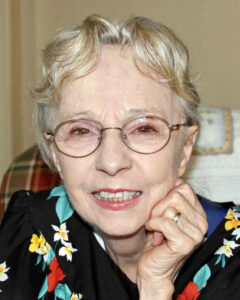
Ramona Mae Saxer, age 81, a resident of Richmond, Texas, passed away Sunday, April 25, 2021, at the Memorial Hermann Hospital in Sugar Land, Texas.
She was born May 24, 1939, in Zenith, Kansas, the only daughter of Clair Keesling and Bernice Beltz Keesling. Ramona was raised in Hutchinson, Kansas.
She went on to attend the Kansas School for the Deaf in Olathe, Kansas and graduated in 1957.
Ramona married the love of her life, David M. Saxer, in 1959.
They made their home in Olathe where Ramona worked in data control for area banks.
The Saxers moved to Richmond in 2011 to be closer to their family. Ramona was known for her selfless, caring and funny personality. She was always smiling and brought joy to those around her. She was a devoted, wife, mother and grandmother who treasured time spent with her family especially time with her granddaughters. Ramona was truly a beautiful person both inside and out.
Survivors include her husband, David, her son, Harvey and wife, Christy, and twin granddaughters, Stella and Samantha.
Funeral services will be held at 11:00 A.M. Friday, April 30th at the Cheney Witt Chapel. Burial will follow in the West Plains Cemetery. Arrangements are under the direction of the Cheney Witt Chapel, 201 S. Main, Ft. Scott, Kansas. Words of remembrance may be submitted to the online guestbook at www.cheneywitt.com.
Opening on Fort Scott Library Board
There is one opening for the Fort Scott Library Board. This person must be a city resident.
The function of the Fort Scott Library Board is to review requests in reference to the library. This Board meets monthly at 5:00 p.m. on the third Tuesday of the month.
If you have a desire to serve on this board and meet the above requirements, please submit a letter of interest to the City Clerk, Diane Clay, 123 S. Main, Fort Scott, Kansas 66701. She will then submit your letter of interest for consideration to the City Commission.
All of the boards and commissions serve on a volunteer basis and are not compensated.
If you would like more information on this board, please contact Diane Clay, City Clerk at 620-223-0550 or [email protected]. Please submit your letter of interest by May 10th, 2021.
FSCC Graduates 250 Students On May 1
Fort Scott Community College is proud to announce over 250 students will graduate on May 1, 2021. This year has been rough on the students, but they were able to persevere through the trials and tribulations. FSCC will have 170 associate degree graduates and 82 students graduating with a certificate.
“The students this year have shown a tremendous amount of grit and determination in completing their degrees or certificates. We are so proud of all our FSCC graduates,” said Adam Borth, Vice President of Academic Affairs.
This year is the 100th anniversary of the first graduating class at FSCC in 1921.
Graduation is scheduled for Saturday, May 1st in the Ellis Fine Arts building at 9:00 a.m. for students receiving an Associate in Applied Science degree or a Certificate.
Students graduating with an Associate in Arts, Science, or General Studies will participate in the 12:00 p.m. commencement ceremony.
A reception for Richard Mayhew, the 2021 Outstanding Alumnus, will be held between the two graduation ceremonies.
Due to COVID-19 restrictions, limited seating will be available for the event, and each graduate will receive two guest tickets. A livestream of commencement will be available 10 minutes prior to the start of each ceremony on the FSCC website, fortscott.edu.
Grants To Improve Distance Learning and Telehealth
Governor Laura Kelly Announces Rural Kansans Eligible for Share of $42 Million in Federal Grants to Improve Connectivity
TOPEKA – Governor Laura Kelly today announced that eligible Kansans can now apply for the for the U.S. Department of Agriculture (USDA) Distance Learning and Telehealth (DLT) grants program.
The USDA has allocated $42.4 million in funding for 2021 DLT grants nationwide. The program aims to help rural communities use the unique capabilities of telecommunications to connect to each other and to the world, overcoming the effects of remoteness and low population density.
“Ensuring all Kansans have access to quality, affordable broadband has always been one of my top priorities – but broadband access is just the first step to connectivity,” Governor Kelly said. “This grant is an incredible opportunity for rural Kansans to get funding for the telecommunications equipment and resources needed for telehealth services, virtual school, digital business activity, and more. I appreciate the USDA’s efforts to improve connectivity throughout the country.”
The program supports eligible rural communities with the costs associated with capital assets, instructional programming, and technical assistance. Program funds can be used on:
- Broadband facilities
- Audio, video and interactive video equipment
- Terminal and data terminal equipment
- Computer hardware, network components and software
- Inside wiring and similar infrastructure that further DLT services
- Instructional programming that is a capital asset
- Technical assistance and instruction for using eligible equipment
DLT Grants are available to rural areas with population of 20,000 or less. Eligible applicants include most entities that provide education or health care through telecommunications, including most state and local governmental entities, federally recognized tribes, non-profits, for-profit businesses, and consortia of eligible entitles. Potential applicants can learn more, check if they are eligible, and apply here.
“Lack of connectivity has been a huge challenge in education and healthcare for rural communities, and this grant program has the potential to make a real impact,” Kansas Secretary of Agriculture Mike Beam said. “We appreciate this partnership with USDA as we work to strengthen and improve the quality of life in rural Kansas.”
The Office of Recovery co-hosted a webinar on the USDA DLT program with the Office of Broadband Development, Office of Rural Prosperity, and Department of Agriculture. You can watch a recording of the webinar and learn more here.
###
